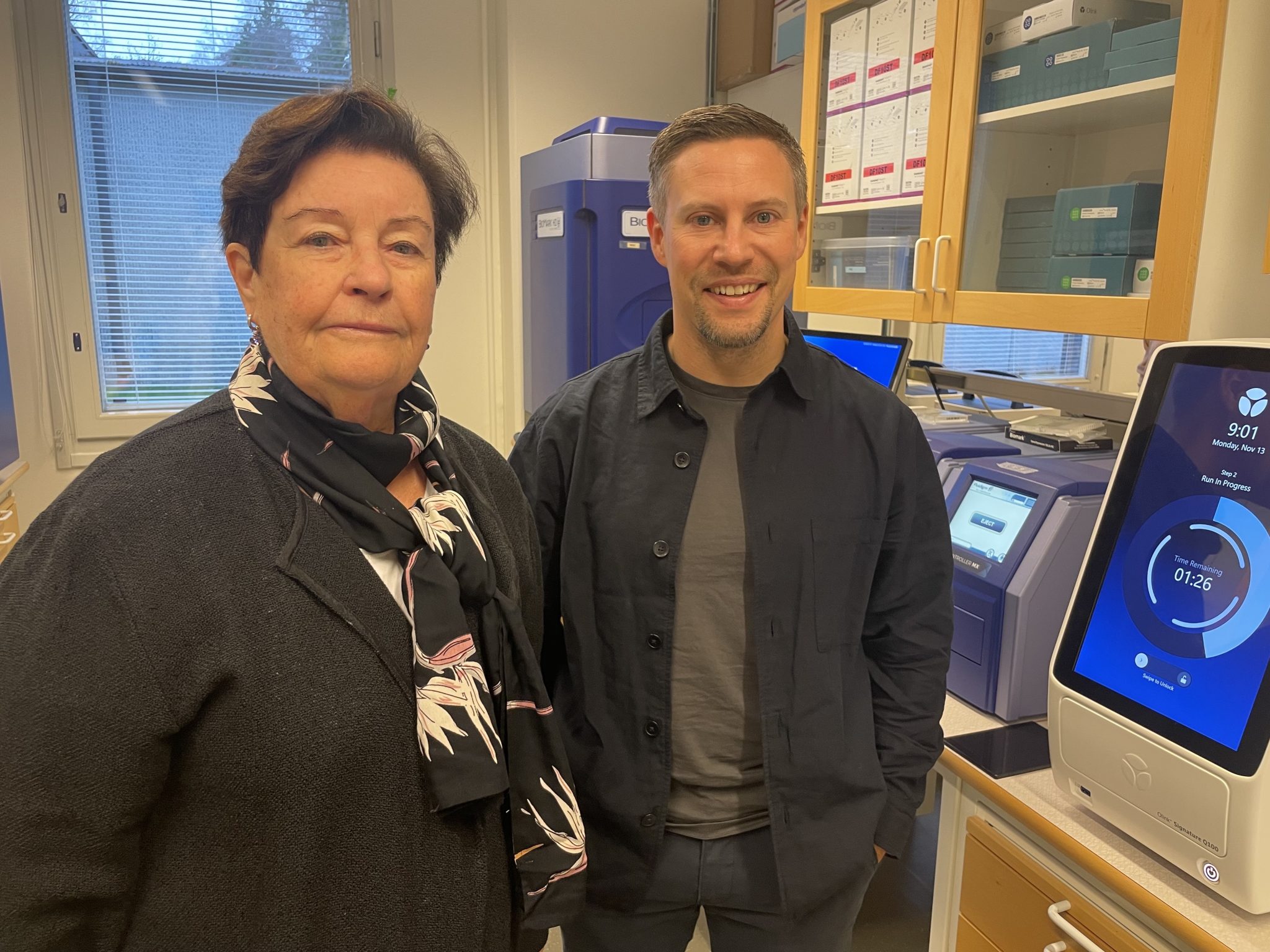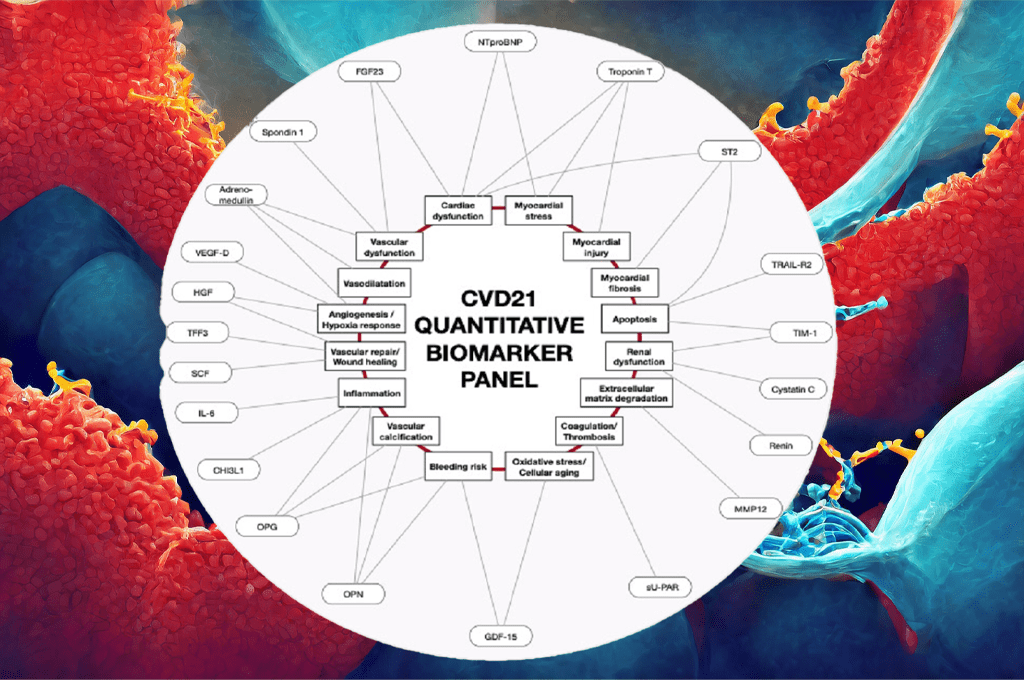New instrument enables precision medicine of cardiovascular diseases
SciLifeLab researcher and Uppsala University professor Agneta Siegbahn, along with her colleagues, have developed a new instrument for simultaneous and precise measurement of 21 circulating proteins (CVD-21 panel) in a drop of blood, aiming to enhance prognostication accuracy and facilitate the selection of the most effective treatment for individual patients with cardiovascular disease.
Diseases of the heart and blood vessels continue to be the most common cause of death worldwide. Medical treatment is associated with high costs and risks of various side effects. New tools are needed to improve risk assessment and strategies for more personalized treatment, as well as to monitor treatment effects.
In collaboration with Olink Proteomics, Agneta Siegbahn and colleagues, developed an initial prototype of the CVD-21 instrument, which, for the first time, quantitatively measures the concentration of these proteins simultaneously in a single analytical step using the Proximity Extension Assay (PEA) method. The CVD-21 instrument demonstrates high precision and reproducibility for the proteins.

“CVD-21 enables a “ liquid cardiovascular biopsy” for quantification of multiple cardiovascular disease processes in a drop of blood. This may improve personalized treatments and care of the patients. Our study also clearly demonstrates that decision support tools including biomarkers enhance risk assessment in cardiovascular diseases,” says Uppsala University professor and SciLifeLab researcher Agneta Siegbahn.
This new instrument is based on analyzing 368 protein biomarkers in the blood of over 10,000 patients who participated in international studies of new treatments for coronary artery disease and atrial fibrillation. Based on these investigations, the research team selected 21 biomarkers with independent prognostic value, reflecting various functional abnormalities that influence the development of cardiovascular disease and the benefits and risks of different treatments.
Subsequently, the researchers evaluated the information from the CVD-21 instrument, along with clinical data in blood samples from 4,224 patients with chronic coronary artery disease. CVD-21, supplemented with troponin T, provided a comparable risk assessment for all types of cardiovascular events as a model with two known risk markers for cardiovascular disease. Moreover, the CVD-21 tool outperformed models using only clinical variables for risk assessment.
Beyond the two well-known protein biomarkers with strong associations to cardiovascular complications nine novel biomarkers with most important prognostic values were also identified. These proteins were included in different protein signatures associated with major coronary events, myocardial infarction, cardiovascular death, and hospitalization for heart failure and reflect a large array of pathophysiological processes.
“The workflow of the development of the CVD-21 instrument demonstrates an essential model for establishing multi-marker-based decision support instruments for cardiovascular disease and several other diseases. Selected biomarkers could further categorize patients with cardiovascular disease into more specific subgroups, offering greater opportunities for tailored treatment strategies,” Agneta Siegbahn concludes.
DOI: 10.1371/journal.pone.0293465
For more information, please contact:

Agneta Siegbahn
SciLifeLab researcher
Former director of SciLifeLab Affinity Proteomics
Professor at Department of Medical Sciences
Uppsala University contact page





